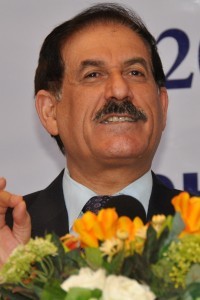
For decades, Iraqi citizens had no say in government.
Today that is changing with the election of Iraq’s Council of Representatives and the convening of public hearings where people express their views about proposed laws.
More than 100 people attended a recent Higher Education and Scientific Research Committee hearing to discuss amendments to Iraq’s Private Universities and Colleges Law. The goal was to solicit public input to bring the law up to to international standards.
The hearing was the committee’s first. It attracted speakers from universities, professional associations, and government ministries. Speakersdiscussed the challenges of standarizing education at private universities, the need to strengthen the relationship between the government and private universities, the importance of earning international accreditation, and the value Iraqi employers place on degrees from overseas colleges versus degrees from Iraqi private and public schools.
USAID’s Iraq Legislative Strengthening Program (LSP) worked two weeks with the Higher Education and Scientific Research Committee to prepare for the hearing.
The committee’s members and staff attended LSP workshops to learn how public hearings work and the best ways to organize proceedings. USAID helped the committee prepare notices and print invitations, banners and posters. In addition, USAID met with local journalists to discuss the importance of public hearings and how they could cover the events.
Following the hearing, the committee began drafting a report that will be submitted to the Council of Representatives with recommendations for amendements to the law based on the views expressed at the hearing.
“We are satisfied with the public’s response and will hold more public hearings in the near future,” said committee chairman Dr. Abd Dhyab Alajeely, who viewed hearings as a “valuable legislative and oversighttool.”







Comment
Make a general inquiry or suggest an improvement.